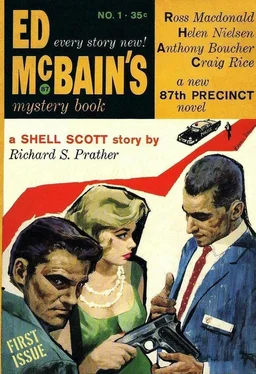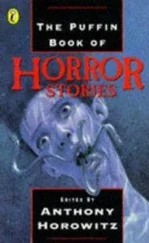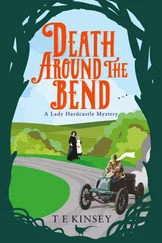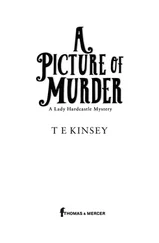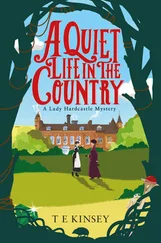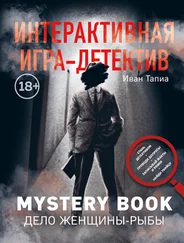Anthony Boucher - Ed McBain’s Mystery Book, No. 1, 1960
Здесь есть возможность читать онлайн «Anthony Boucher - Ed McBain’s Mystery Book, No. 1, 1960» весь текст электронной книги совершенно бесплатно (целиком полную версию без сокращений). В некоторых случаях можно слушать аудио, скачать через торрент в формате fb2 и присутствует краткое содержание. Город: New York, Год выпуска: 1960, Издательство: Pocket Books, Жанр: Детектив, на английском языке. Описание произведения, (предисловие) а так же отзывы посетителей доступны на портале библиотеки ЛибКат.
- Название:Ed McBain’s Mystery Book, No. 1, 1960
- Автор:
- Издательство:Pocket Books
- Жанр:
- Год:1960
- Город:New York
- ISBN:нет данных
- Рейтинг книги:5 / 5. Голосов: 1
-
Избранное:Добавить в избранное
- Отзывы:
-
Ваша оценка:
- 100
- 1
- 2
- 3
- 4
- 5
Ed McBain’s Mystery Book, No. 1, 1960: краткое содержание, описание и аннотация
Предлагаем к чтению аннотацию, описание, краткое содержание или предисловие (зависит от того, что написал сам автор книги «Ed McBain’s Mystery Book, No. 1, 1960»). Если вы не нашли необходимую информацию о книге — напишите в комментариях, мы постараемся отыскать её.
Ed McBain’s Mystery Book, No. 1, 1960 — читать онлайн бесплатно полную книгу (весь текст) целиком
Ниже представлен текст книги, разбитый по страницам. Система сохранения места последней прочитанной страницы, позволяет с удобством читать онлайн бесплатно книгу «Ed McBain’s Mystery Book, No. 1, 1960», без необходимости каждый раз заново искать на чём Вы остановились. Поставьте закладку, и сможете в любой момент перейти на страницу, на которой закончили чтение.
Интервал:
Закладка:
It sent a chill over my skin. I glanced at Robbie. One vivid glimpse of her standing a few feet away in sun-limned nakedness, splash of pinkness in one hand, standing straight, back slightly arched. Just a glimpse of her, half a second — and then I was running. That taller man was still scrambling down the path. He’d probably thrown the other man over the cliff alive but unconscious, and was going down to make sure he was dead.
When I was halfway to the body, the man saw me. He froze on the steeply slanting path, jerked his head toward me. Then he turned, started back up in a hurry, feet sliding. There wasn’t a chance I could catch him. He’d be gone in seconds — and I didn’t have any idea who he was, what he looked like.
The camera was still in my hand; I’d forgotten it, been unaware of it while running. I slid to a stop, raised the camera, and centered it on the man, shoved the Zoomar lever forward as I started the film unwinding. His body grew larger in the view finder. I shouted as loudly as I could, and he turned. He stared — and I had him.
Then I lowered the camera, ran forward again. Twenty yards away now lay the sprawled body. As my eyes fell on it, there was a sudden sharp sound. A spurt of sand leaped close on my left. That sound I knew well — a gunshot.
I dug one foot into the sand, skidded, slowed, and then jumped forward, jerking my head up. He was below the top of the cliff, facing me, right arm extended. The gun cracked again, but the bullet hit yards from me. All I could think of for a moment was that if I got a film of him shooting at me his goose would be cooked to a crisp. It didn’t occur to me that I might get a film of the ape killing me; that the .38 Colt Special I usually carry was now two hundred yards down the beach; that I was standing out here in bright sunlight shooting a camera at a guy who was shooting a real gun at me. I just swung the camera up, held it on him for two or three seconds, getting a stupendous shot — through the telescopic lens I could even see the faint flash of fire from the gun’s muzzle. It was an astounding, a remarkable shot, a real murderer, real bullets...
That was the one that filtered. That brought me to my few senses. Real... bullets?
I let out a great blast of sound and jumped six feet through the air. That gun cracked again. I felt the impact, the sudden shock. It jarred me, turned me. The camera flew from my hands. I slammed down on one knee. I rolled, got to my feet again, squatting low, looked up. The man was scrambling upward again and as I watched he went over the cliff’s edge and out of sight.
Slowly I straightened up, heart pounding. I looked down over my bare skin, felt over my back and swim trunks. No blood. No holes. Then I saw the Bell-and-Kowell on the sand. He hadn’t hit me; he’d hit the camera. It was twisted, case sprung open, and film half out of the sprockets, sunlight glaring on it all.
I clambered up the face of the cliff, but he was long gone. A haze of dust hung over the dirt road leading to Coast Boulevard a quarter of a mile away. From the cliff’s edge I looked down the beach. The sun was getting low, and the hellish glare that at certain hours bounces from the sea almost blinded me. I couldn’t see Robbie unless I squinted and looked carefully — which explained why the guy hadn’t seen us down there.
On the beach again, I picked up the camera, forced the gate closed over the ruined film, walked to the body on the beach. The man was quite dead. But he was still warm, limp, not dead long. Almost surely he’d been alive when pushed over the cliff’s edge. It would probably have passed as an accidental death, instead of the murder it was. He was a short man, maybe a hundred and fifty pounds, bald, his skull caved in above his left eye. His face was deeply pimpled where it had hit the sand.
I left him, walked back down the beach.
Robbie was in her bikini again, still a gorgeous sight, but somehow not quite the same now. The difference between my one brief but marvelously vivid glimpse of Robbie unadorned, unashamed, compared to Robbie adorned — even in a brief pink bikini — was the difference between prime ribs and hamburger, between wine and sour grapes. And in me started growing a cold, concentrated, surging desire to get my hands on that slob who’d just gotten away and slowly pull off his head.
As I stopped near her, Robbie said, with a chill as of early winter in her voice: “You can take me home now, Scott.”
Scott. Not Shell any more. That probably meant she wanted to hit me over the skull with something large and heavy. What was the matter with her? Didn’t she realize I’d had no choice?
I said: “Simmer down. Didn’t you hear those shots?”
“Shots? Is that what they were? I heard some noises.” She tossed her head. “All I know is, there I was all... well... and off you went. Actually running. Running away.”
Nobody will deny that women have a different approach to logic than do men. They sort of sneak up on it from behind, like an Indian skulking through the grass. But this was too much.
“Robbie, my dear little imbecile,” I said with some heat, “I have just been eyeballing a most unpleasant corpse, not to mention the fact that I just got shot at several dozen times — three or four times, anyway — and the stupendous damned movie I took of the killer is all shot to hell — get it through your head a guy has just been murdered.”
“I’ll murder you.”
“I’m serious!”
“I’m not?”
“Robbie. You really don’t understand!” I took a deep breath. “Dear. Robbie. I am aware of what’s eating you. I realize it is not considered cricket in your dizzy set — in which at the moment I include all women — for a man to race wildly over the sand immediately after—”
“What do I care? I really couldn’t care less. I really couldn’t. Take me home.”
I grabbed her shoulders, looked into her face. “I have a surprise for you. There is a dead guy lying down the beach a ways. His head is all crashed in, and most unbeautiful. That’s why I went tripping away, dear heart. I saw a tall cat fling him off the cliff.”
Apparently she hadn’t seen anything except me whooping along the tidemarks, running like a coward. Coward — little did she know.
“Of course,” she said. “There’s a massacre. Custer is down there—”
I grabbed her hand and yanked her after me. In arguments with women there comes a time when words are useless and positive action is indicated. I hauled her after me, her feet dragging and kicking, and she rattled a great deal of popcorn-popping Spanish at me, a language she used when at a temperature which would split clinical thermometers. She didn’t even see the dead man until we were almost on top of him.
Then I stopped, turned her around, and pointed. “There, lamebrain. I was telling you the complete truth. I did see a guy fling him off—”
I won that argument. She fainted.
2.
Night fell softly as we drove back toward Los Angeles. The police had been notified, the body trundled away, and Robbie and I had that behind us now, the evening ahead.
She had forgiven me. Not all at once, but unreservedly at last. Now she was snuggled close to me on the seat, hanging onto my arm. The top was down on my Cadillac, and a spiced breeze washed around us.
We had been discussing the afternoon, and now she asked me a question she hadn’t asked before. “Shell, the man who pushed the other one off the cliff. What did he look like?”
“Why, he was... I don’t know. I was so busy trying to get the film of him, and then dodging bullets, I never did really get a look at him.” I considered the sad fact. “I haven’t the faintest idea what he looks like. And I don’t have the film now, either.”
Читать дальшеИнтервал:
Закладка:
Похожие книги на «Ed McBain’s Mystery Book, No. 1, 1960»
Представляем Вашему вниманию похожие книги на «Ed McBain’s Mystery Book, No. 1, 1960» списком для выбора. Мы отобрали схожую по названию и смыслу литературу в надежде предоставить читателям больше вариантов отыскать новые, интересные, ещё непрочитанные произведения.
Обсуждение, отзывы о книге «Ed McBain’s Mystery Book, No. 1, 1960» и просто собственные мнения читателей. Оставьте ваши комментарии, напишите, что Вы думаете о произведении, его смысле или главных героях. Укажите что конкретно понравилось, а что нет, и почему Вы так считаете.
